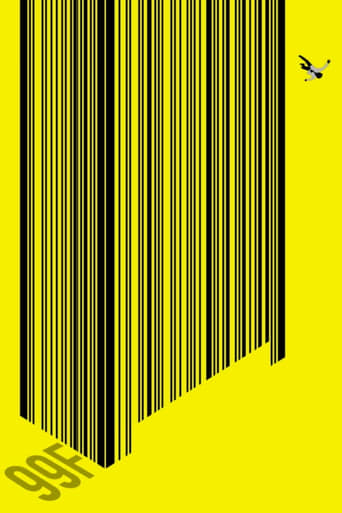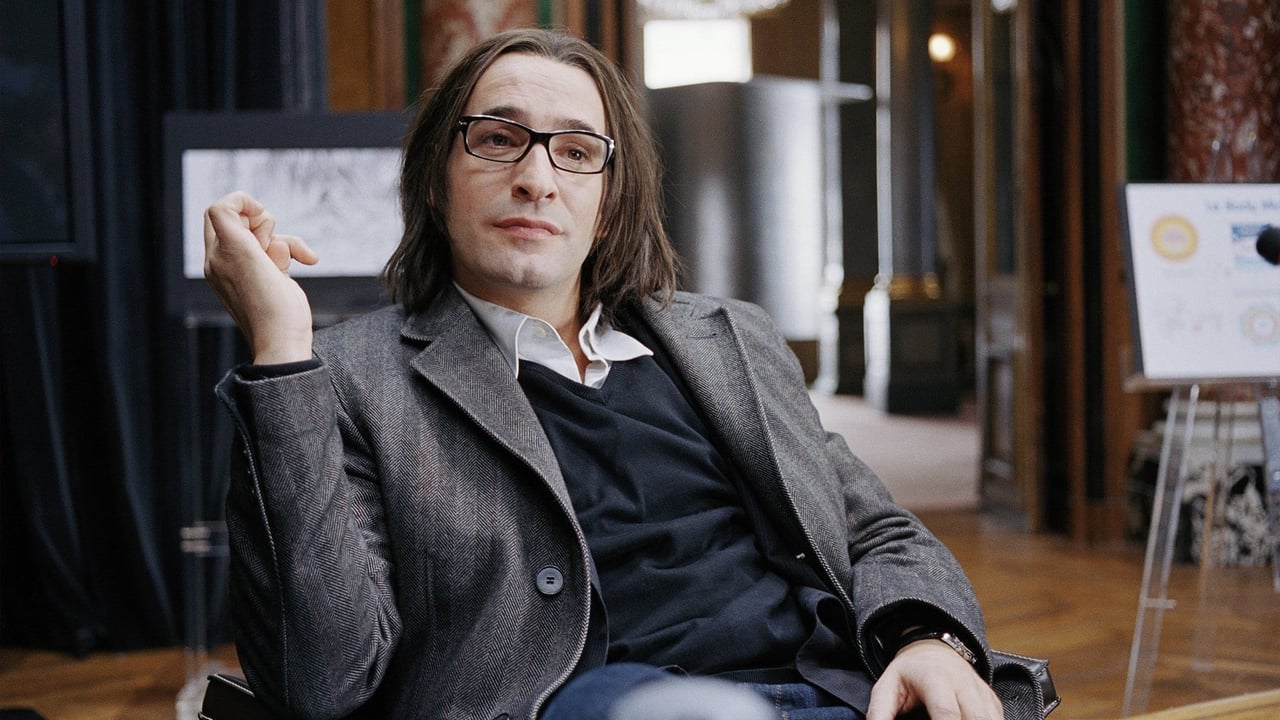aa aa
This is an excellent black comedy yet very cynical and pessimistic. Every character in the movie is ridiculous: art designers constantly on drugs, product managers with a complete lack of originality, models who would sleep with anyone to get a part. But, behind those characters emerges some truth about the way advertising works and how we are manipulated by it without knowing it. The whole point of the movie is to show how you can sell an industrial basic yoghurt by giving something more, "a brand", selling a dream. On that point, I would disagree with previous comments on the significance of the ending. It is far from being a nice "World Aid", moral ending. It is in fact the opposite. The jungle episode where everything seems perfect is in fact only...a dream caused by an advertisement. At the end of his life, the ad creator falls himself in the trap of advertising. A fantastic way to end the movie!
Radu_A
Jan Kounen's adaptation of Frédéric Beigbeder's bestseller has, to put it in wiki lingo, multiple issues. First, it commits the deadly sin of literature adaptations: excessive off-the-screen narration by the main character Octave, an abusive, drug-addicted advertisement creative. There's a lot of plot development which is never on-screen, and the narrator tries to do exactly what he blames the advertisement business for: lead us astray.That's the second weak point of this film: by following the main character's viewpoint, it invests advertisement with almost god-like power. However, studies in the field (as one's own living experience) do not confirm a definite impact of advertisement on consumer choice. If you are aware of this, and especially if you are a woman, and most especially if you are a homemaker, you may find the constant bickering on the ease of manipulating (female) minds rather off-topic and sexist. To be fair, this irritating aspect is faithful to the novel.But to conclude with the third and major flaw of the film: the stereotypes don't allow for any social statement. If larger-than-life characters keep dishing it out against society and each other, where is the social comment? And if it's a drama, why not focus on the main events - Octave's falling out with his job and lifestyle, and his incapability to admit his feelings to the only woman he's ever loved? Instead, the viewer is being bombarded with F/X and heavy visual leanings on Spike Jonze, the Coen Brothers and Terry Gilliam, leading more or less nowhere.The sad thing is: when there's no talk and no abuse, this is actually excellent stuff. A wordless 'alternative ending' really does what the rest of the film was only gibbering about: deliver an accurate summary on how the wish to make one's life less twisted will ultimately remain a (death) wish for the 'civilized' man. More of such imagery, and this would have been a masterpiece.
Hercooles1
Yesterday, I saw this movie in a sneak preview of a German cinema. In Germany this film is called 39,90 like the title of a book from Frédéric Beigbeder that is also an impeachment against the advertising industry. 99 francs is a funny, cruel and "sloping style" satire. It provides an funny and terrifying real insight into the world of advertisement. Coevally, this film is something like a personality profile of a man that is a victim the world he created. A unreal, pseudo-world, in which you can get everything for money.Nothing in 99 francs is subtle, like advertising isn't subtle. Advertising is mostly one: No, not annoying. It's repetition. The repetition of itself and - in content - of references in movies, literature and art. And so it's logical that this movies refers to all different culture historical things to charge consumerism. So there are allusions to "A Space Odyssey" or "Fight Club". I think you have to see this movie to make up your own mind because it's really hard to describe this visually stunning movie because feels like a roller coaster with lots of loops.
moimoichan6
The first question that comes to mind when you ear about this project is : what the hell is Jan Kounen doing as a director of such a movie ? Jan Kounen was a french talented and trendy director of the 90's, just as his friend Matthieu Kassovitz. He released "Doberman" when Kasso brought "La Haine" on french screens. But after this violent/cartoon movie, Jan Kounen had discovered Shamanism while directing his experimental trip out of (the blues) "Blueberry" and then made a documentary about inner journey and other substantial trips. "99 Francs", on the other hand is an auto-fiction by the french intellectual bobo Beigbeider, that narrates his experience as a publicist in a satirical and fashionable style. So, my question was : what's the link between this director and this book and what the hell is Jan Kounen doing as a director of such a movie ?First, from a factual point of view, Kounen and the main and incredibly credible actor of the movie, Jean Dujardin, have them-self been publicists, and decided to take the book as a starting point, and to go on completely different directions. Beigbeder, who appears several times in the movie, agreed to this betrayal. But this critic of the advertising world isn't the best part of the movie, and only seems to be a support for more experimental journey that only drugs can give.The character of the movie inhales himself several time a gargantuesque quantity of cocaine, unknown pills and other drugs, that makes him have gigantic visions that the movie emphases. A large parts of the movie is just a description of absurd visions, that links the cartoon and trash violence of "Doberman" with the experimental form of "Bluebberry" in the funny and cool package of a critic of advertising and a large public comedy. The best part of "99 Francs" is to me an improbable escape to the tropical forest of "Bluebberry", with Jan 'Pydjhaman' Kounen like guide. If Yan Kounen defines is movie as the "Yogourt Fight Club", the film is also near from Gilliam's more experimental and crazy works.


 AD
AD



